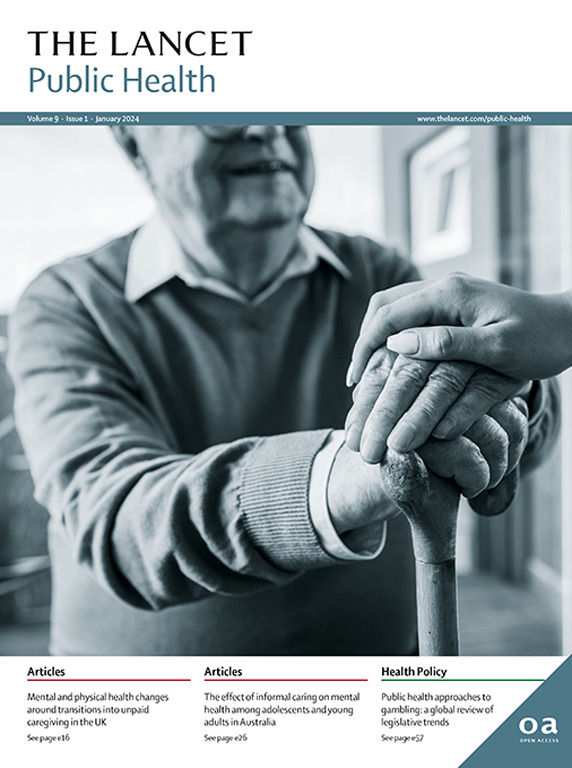Artificial intelligence in public health: promises, challenges, and an agenda for policy makers and public health institutions
IF 25.4
1区 医学
Q1 PUBLIC, ENVIRONMENTAL & OCCUPATIONAL HEALTH
引用次数: 0
Abstract
Artificial intelligence (AI) can rapidly analyse large and complex datasets, extract tailored recommendations, support decision making, and improve the efficiency of many tasks that involve the processing of data, text, or images. As such, AI has the potential to revolutionise public health practice and research, but accompanying challenges need to be addressed. AI can be used to support public health surveillance, epidemiological research, communication, the allocation of resources, and other forms of decision making. It can also improve productivity in daily public health work. Core challenges to its widespread adoption span equity, accountability, data privacy, the need for robust digital infrastructures, and workforce skills. Policy makers must acknowledge that robust regulatory frameworks covering the lifecycle of relevant technologies are needed, alongside sustained investment in infrastructure and workforce development. Public health institutions can play a key part in advancing the meaningful use of AI in public health by ensuring their staff are up to date regarding existing regulatory provisions and ethical principles for the development and use of AI technologies, thinking about how to prioritise equity in AI design and implementation, investing in systems that can securely process the large volumes of data needed for AI applications and in data governance and cybersecurity, promoting the ethical use of AI through clear guidelines that align with human rights and the public good, and considering AI's environmental impact.公共卫生中的人工智能:政策制定者和公共卫生机构的承诺、挑战和议程
人工智能(AI)可以快速分析大型和复杂的数据集,提取量身定制的建议,支持决策制定,并提高涉及处理数据,文本或图像的许多任务的效率。因此,人工智能有可能彻底改变公共卫生实践和研究,但需要解决随之而来的挑战。人工智能可用于支持公共卫生监测、流行病学研究、通信、资源分配和其他形式的决策。它还可以提高日常公共卫生工作的生产力。其广泛采用的核心挑战包括公平、问责制、数据隐私、对强大的数字基础设施的需求以及劳动力技能。政策制定者必须认识到,除了对基础设施和劳动力发展的持续投资外,还需要涵盖相关技术生命周期的强有力的监管框架。公共卫生机构可以在推动人工智能在公共卫生中的有意义使用方面发挥关键作用,方法是确保其工作人员了解人工智能技术开发和使用的现有监管规定和道德原则,考虑如何优先考虑人工智能设计和实施中的公平性,投资于能够安全处理人工智能应用所需的大量数据的系统,以及投资于数据治理和网络安全。通过与人权和公共利益相一致的明确指导方针,促进人工智能的道德使用,并考虑人工智能的环境影响。
本文章由计算机程序翻译,如有差异,请以英文原文为准。
求助全文
约1分钟内获得全文
求助全文
来源期刊

Lancet Public Health
Medicine-Public Health, Environmental and Occupational Health
CiteScore
55.60
自引率
0.80%
发文量
305
审稿时长
8 weeks
期刊介绍:
The Lancet Public Health is committed to tackling the most pressing issues across all aspects of public health. We have a strong commitment to using science to improve health equity and social justice. In line with the values and vision of The Lancet, we take a broad and inclusive approach to public health and are interested in interdisciplinary research.
We publish a range of content types that can advance public health policies and outcomes. These include Articles, Review, Comment, and Correspondence. Learn more about the types of papers we publish.
 求助内容:
求助内容: 应助结果提醒方式:
应助结果提醒方式:


